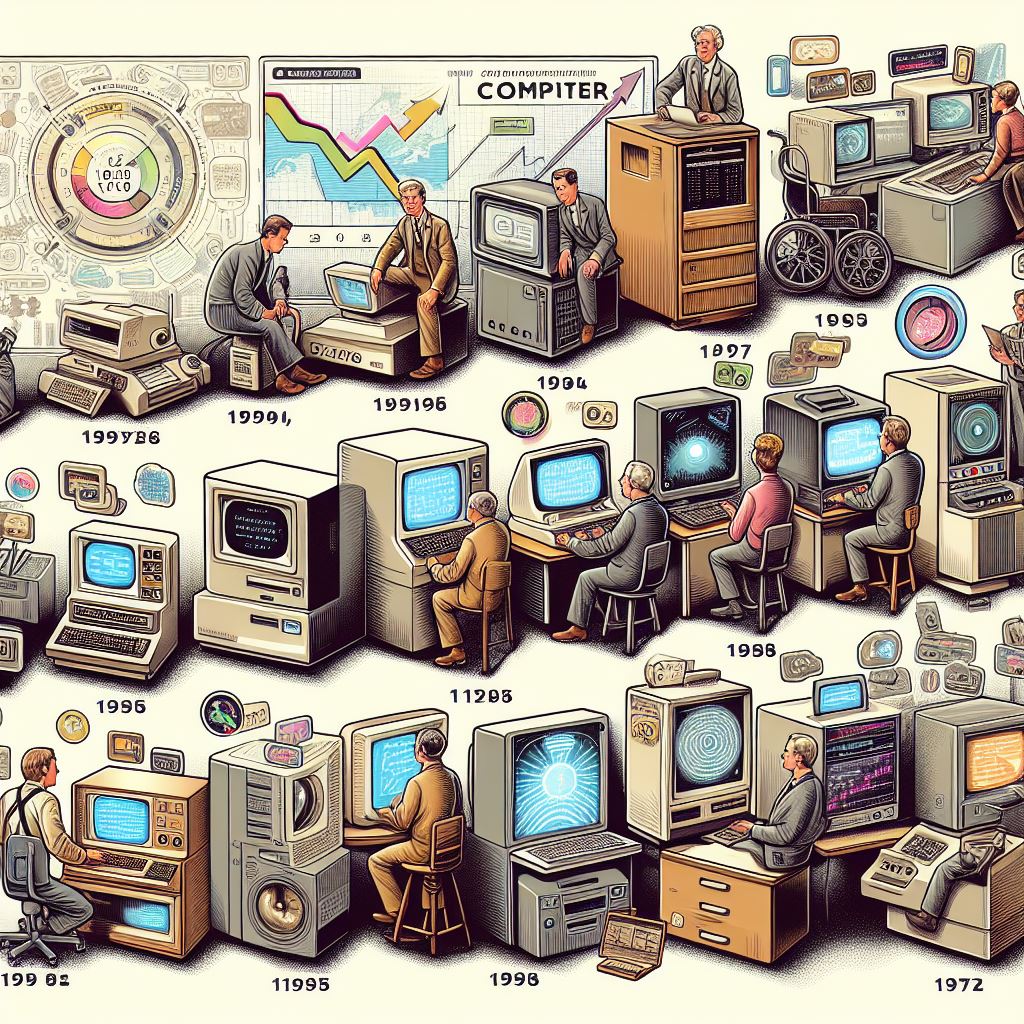In the vast tapestry of human innovation, few inventions have left as profound a mark on society as the computer. From humble beginnings to the digital age, the evolution of computers mirrors our relentless quest for knowledge, efficiency, and connectivity. As we marvel at the sleek devices that define our modern world, it’s essential to reflect on the remarkable journey that brought us here.
The Birth of Computing
The story of computers begins long before the age of silicon and microchips. In the 19th century, visionaries like Charles Babbage and Ada Lovelace laid the groundwork for modern computing with their pioneering work on mechanical calculating machines. Babbage’s Analytical Engine, conceived in the 1830s, foreshadowed the concepts of programmable computers, while Lovelace’s visionary insights into algorithmic computation earned her the title of the world’s first computer programmer.
From Vacuum Tubes to Transistors
The mid-20th century witnessed a seismic shift in computing with the advent of electronic computers. The ENIAC, unveiled in 1946, was among the first electronic general-purpose computers, boasting impressive computational power but requiring vast physical space and consuming enormous amounts of energy. The subsequent development of transistor-based computers, pioneered by figures like John Bardeen, Walter Brattain, and William Shockley, revolutionized computing by miniaturizing components, increasing reliability, and reducing costs.
The Dawn of the Digital Age
The 1970s heralded the birth of the modern computing era, characterized by the rise of personal computers and the birth of Silicon Valley. Visionaries like Steve Jobs and Steve Wozniak brought computing power to the masses with the introduction of the Apple I and Apple II, while pioneers like Bill Gates and Paul Allen founded Microsoft, laying the foundation for the software revolution that would shape the digital landscape.
The Internet Revolution
The advent of the internet in the late 20th century marked a paradigm shift in computing, transforming it from a tool for computation to a platform for communication, collaboration, and innovation. Tim Berners-Lee’s invention of the World Wide Web in 1989 democratized access to information, connecting billions of people around the globe and laying the groundwork for the digital economy that defines our modern world.
Looking to the Future
As we stand on the precipice of the fourth industrial revolution, characterized by artificial intelligence, quantum computing, and the Internet of Things, the history of computers serves as a testament to human ingenuity and the boundless potential of technology to shape our world. As we navigate the complexities of the digital age, it’s essential to remember the lessons of the past and harness the power of computing to build a brighter, more inclusive future for all.


